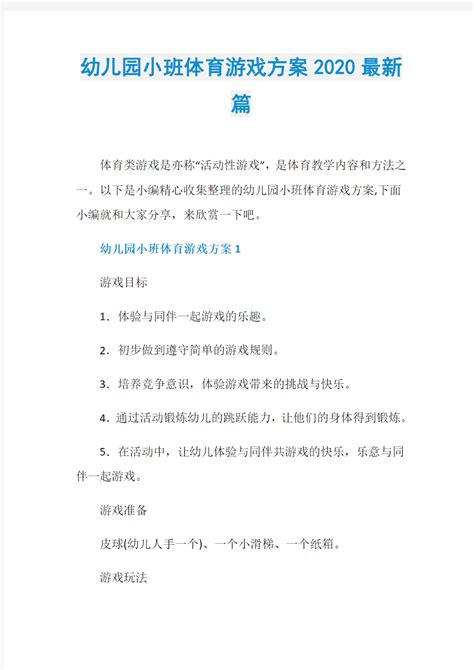Case Study: |
Implementing Small Group Physical Education Games |
|---|
Introduction: |
Physical education plays a crucial role in fostering holistic development among students, encompassing physical, social, and emotional aspects. Implementing small group games can enhance engagement and skill acquisition. This case study explores the effectiveness of small group physical education games. |
|---|
Objective: |
To analyze the impact of small group physical education games on student engagement, skill development, and overall learning outcomes. |
|---|
Methodology: |
Observational study conducted over a period of 6 weeks in a middle school physical education class. Games included variations of tag, relay races, and cooperative challenges. |
|---|
Findings: |
- Increased Engagement: Students exhibited higher levels of enthusiasm and participation during small group games compared to traditional wholeclass activities.
- Skill Acquisition: Through repeated practice in small group settings, students showed noticeable improvements in coordination, teamwork, and strategy.
- Social Interaction: Small group games facilitated peer interaction, communication, and collaboration, contributing to the development of social skills.
- Positive Learning Environment: The supportive and inclusive nature of small group activities fostered a sense of belonging and motivation among students.
- Teacher Facilitation: Effective facilitation by the teacher was crucial in guiding and encouraging students, ensuring fair play, and resolving conflicts.
|
|---|
Recommendations: |
- Integration of Small Group Games: Incorporate small group games regularly into the physical education curriculum to maintain student interest and promote skill development.
- Varied Game Selection: Offer a diverse range of games that cater to different interests, abilities, and fitness levels, ensuring inclusivity and engagement for all students.
- Teacher Training: Provide professional development opportunities for physical education teachers to enhance their facilitation skills, promote effective communication, and manage group dynamics.
- Evaluation and Feedback: Routinely assess student progress and gather feedback to tailor game selection and instructional approaches, fostering continuous improvement.
- Encourage Student Leadership: Empower students to take on leadership roles within small groups, promoting peer mentoring, responsibility, and teamwork.
| 
|---|
Conclusion: |
Small group physical education games offer a dynamic and effective approach to enhancing student engagement, skill development, and social interaction. By integrating these games into the curriculum and supporting teachers with adequate training and resources, schools can create a positive and inclusive learning environment that promotes physical literacy and overall wellbeing among students. |
|---|